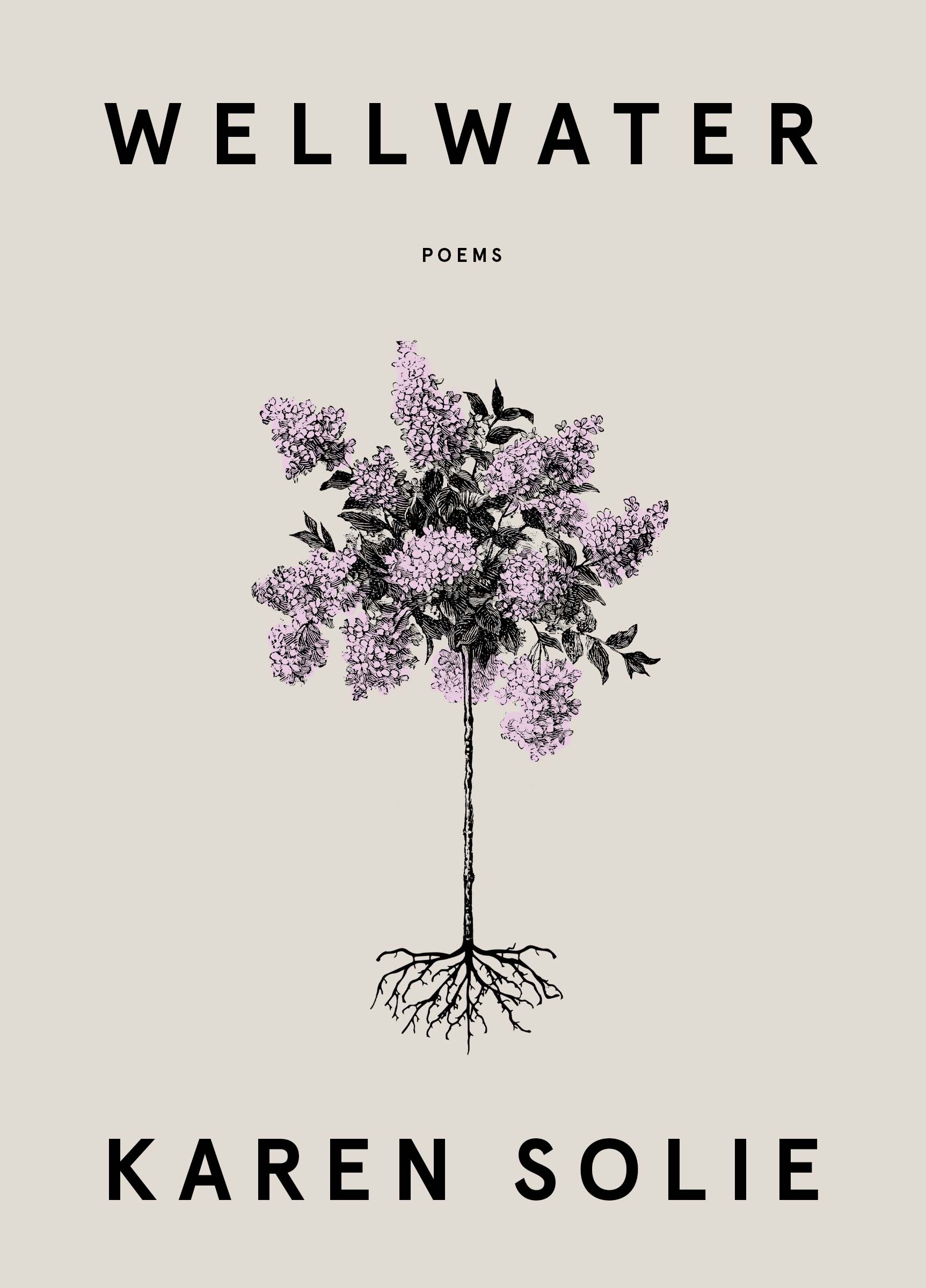Wellwater
by Karen Solie
House of Anansi Press
112 pages
$23
Sardonic, perceptive, and unrelenting, the poems in Karen Solie’s Wellwater carry the same attention to the materiality of everyday life that define much of her earlier works. This timely sixth collection examines the intersection of the economic and climate crises, highlighting the harsh reality of corporate greed and the heightened inequalities of modern society. As Solie grimly reminds us: “Whoever has no house now, will never have one.”
Wellwater opens with “Basement Suite,” a dark, damp, and musty space that brings every rental occupant “closer to God because / closer to consequence, to creatures no one loves / but the specialists.” This underworld-esque place, which the house itself tries to forget, teems with unwanted weevils of every kind, though Solie is quick to remind readers that what lies above the surface is no paradise either: “money flows no more freely up here, / look around you.”
The placement of the title poem as the second in this collection is intentional. In “Wellwater,” Solie paints a picture of a young girl drinking water directly from a hose, back when it was still safe to do so, before the arrival of “gas well company agents, / fracking derricks across the county / appearing before, as we said, we knew it.” The stark juxtaposition between the past and present is a powerful one that sets the stage for the gradual loss of the environment and ways of life in the countryside. Solie explains it more bluntly in “Red Spring,” where families can’t afford to keep their farms, their land swallowed by corporations that replace them with “feedlots, gas wells, sweatshops, coal mines.”
“Toronto the Good” delves straight into the dire state of housing affordability, where rent for bug-ridden, windowless, “ill-intentioned micro-suites” with “a maintenance philosophy / of who gives a shit” have doubled in two years, followed by renovictions and Airbnb takeovers. Solie builds on this sentiment in “Just Say the Word” with the evocative image of a new condo development sailing in “from an increasingly unaffordable future / flying the skull and crossbones of Tridel Communities” to displace long-time residents. As old buildings are demolished to be resurrected as high-rises “with paradisical walk scores,” so, too, are the traces of who we are.
The future may seem bleak—but it is not lost. Solie shows that in the face of destruction, nature is extraordinary and resilient. The owlets of “Canopy” still remain, flourishing and exceeding their average lifespan, despite the gas well trucks and corporate farms lingering below their nests. There are such miracles in nature, and when spring arrives and the owlets persist to “champagne the air with cotton,” so does the hope for change and renewal.














